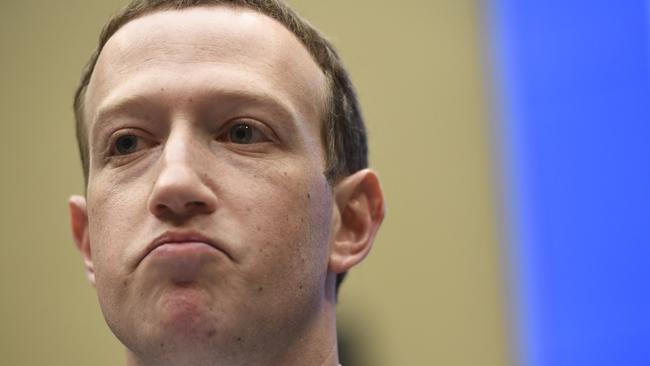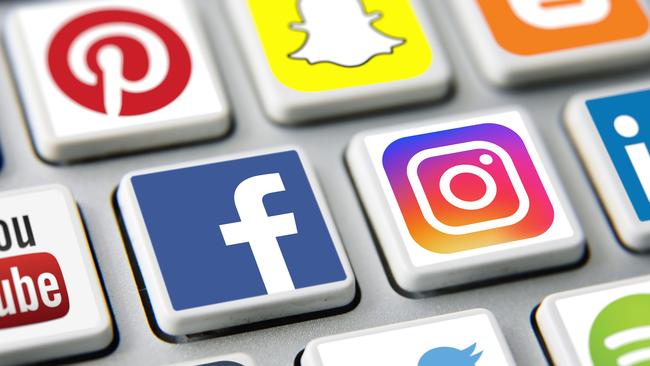Kylie Lang: Selfish reasons we should be very worried about impact of social media on today’s children
We should be very worried about the toxic ills of social media on today’s children – for selfish reasons.

Opinion
Don't miss out on the headlines from Opinion. Followed categories will be added to My News.
We should be very worried about the toxic ills of social media on today’s children – for selfish reasons. Blink and those small people who can’t put away their phone long enough to safely cross a street will be big people.
They’ll be the ones making the decisions on how the rest of us get to see out our days.
They’ll be holding political office, building infrastructure, shaping healthcare, making scientific discoveries and, in myriad other ways, influencing what life looks like for everyone still drawing breath – including Mark Zuckerberg.
The billionaire Meta CEO might be sailing off to somewhere fabulous on his new $460m superyacht – but short of squirrelling himself away in a bunker on an island in the middle of the Pacific, he will eventually face a world forever tarnished by his Facebook invention and its spin-offs.
Oh wait … bunker, island, ocean? Zuckerberg is already on to this, constructing a $414m compound on the Hawaiian island of Kauai.
As reported in Wired magazine in December, the 567ha fort will include a 465sq underground shelter with its own energy and food supplies.
And as Douglass Rushkoff, author of Survival of the Richest, told the magazine: “If anybody has enough money to insulate himself from the damage created for society, it would be ‘Zuck’.”

Meanwhile, the rest of us muddle on, unsure of what lies ahead with an incoming generation of adults who are potentially damaged goods.
Of course, not every young person will be affected by social media in the same way, just as not all social media use is bad. However, research shows that Facebook, Instagram, TikTok and other platforms create or exacerbate negative behaviours and mental unwellness.
We’re talking narcissistic traits, anxiety, depression, eating disorders, loneliness, sadness and acute disconnection from society – the antithesis of the term ‘social media’.
At a more basic level, critical real-time communication is at risk.
Clinical psychologist Catherine Steiner-Adair has said texting and online communication puts kids in “a non-verbal disabled context”, where body language, facial expression and vocal reactions are rendered invisible.
None of this augurs well for when these kids are running the world. It’s also a travesty that young lives are being compromised, if not destroyed.
I’ve written too many stories about children who’ve suicided, with their families citing cyberbullying as the tipping point.
Others kids grapple with pitifully low self-esteem, again with parents blaming social media.
This week, former Meta executive Frances Haugen told The Courier-Mail the tech giant was aware of the harmful impact of its algorithms but failed to do anything about it.
Ms Haugen said children shouldn’t be allowed to have a smartphone until they turn 14.
Coincidentally, the state of Florida announced one of the US’s strictest crackdowns, with a bill banning social media accounts for children under 14.
Both are good initiatives. But I disagree 14 is the magical age.
Indeed, there is no safe age.
Children in Year 9 are well shy of being sufficiently mature to navigate away from the toxicity of social media. At this crossover between tweens and adulthood, hormones go berserk and kids are desperately trying to work out who they are and where they fit in the world.
Ask any teacher which year level they find the most challenging and it will invariably be Year 9.
Even slightly older people are poor at handling social media.
A recent US study found respondents aged 16-29 were at risk of “digital obesity” and should restrict their consumption of social media.
This cohort reported far higher levels – we’re talking up to 50 per cent – of depression, anxiety and loneliness than people over age 45, who spent less time online.
They exhibited more narcissistic traits and felt more judged by others.
Futurist Nikolas Badminton, who co-authored the study with market research firm Intensions Consulting, described social apps as “parasitic” and said “humanity is now at a turning-point”.
“In fact, we demand that the technology companies put functionality in place to encourage moderate-to-low usage,” he said.
Queensland Premier Steven Miles said similarly on Wednesday, urging tech giants to act responsibly instead of impacting young people and society “with impunity”.
Fine, but is anybody listening?
Kylie Lang is associate editor of The Courier-Mail
kylie.lang@news.com.au
Originally published as Kylie Lang: Selfish reasons we should be very worried about impact of social media on today’s children



